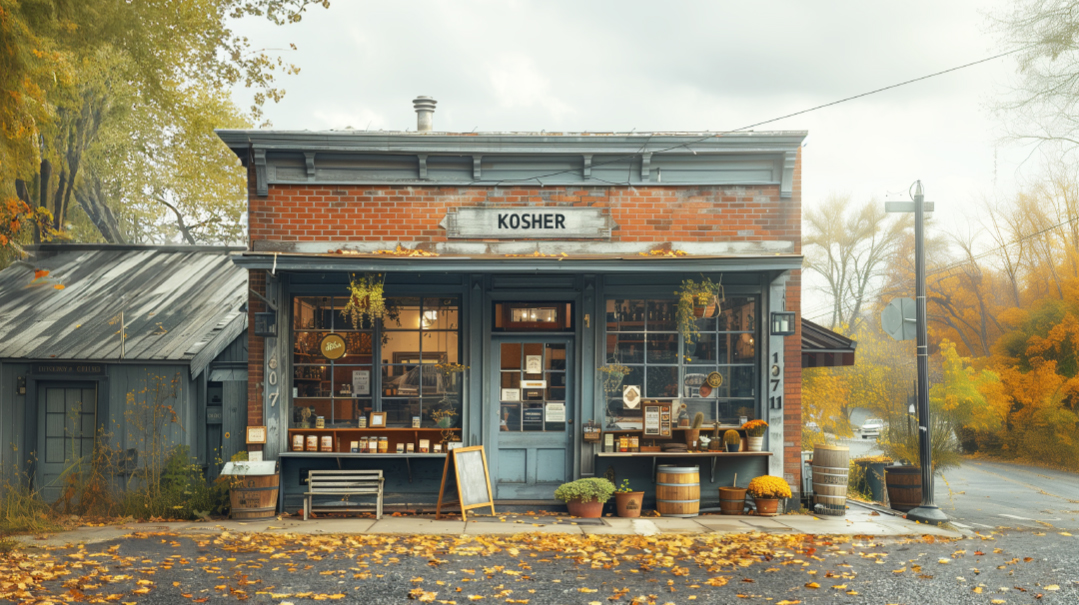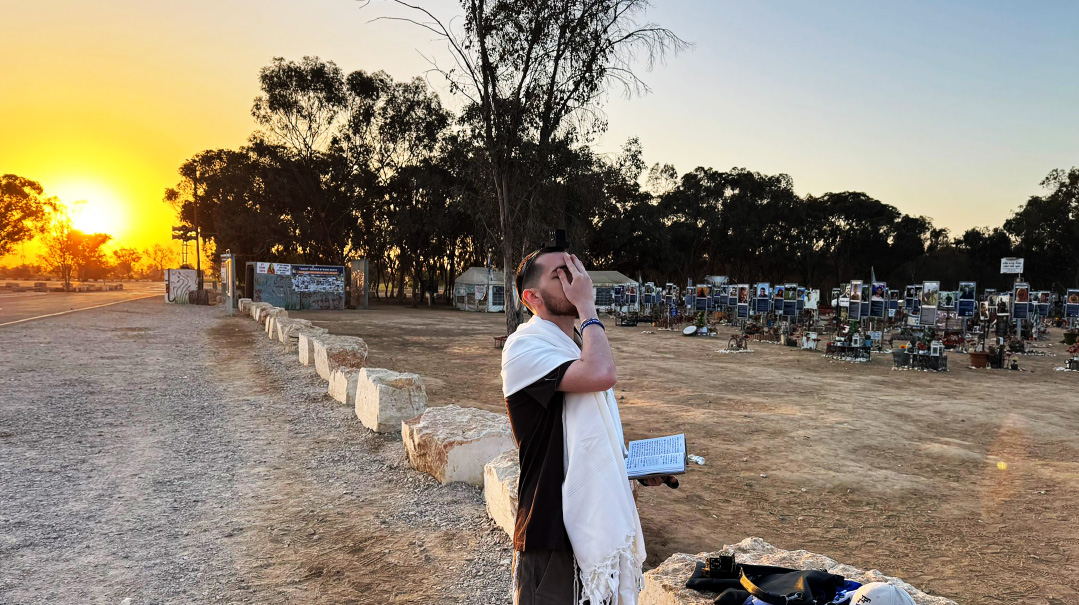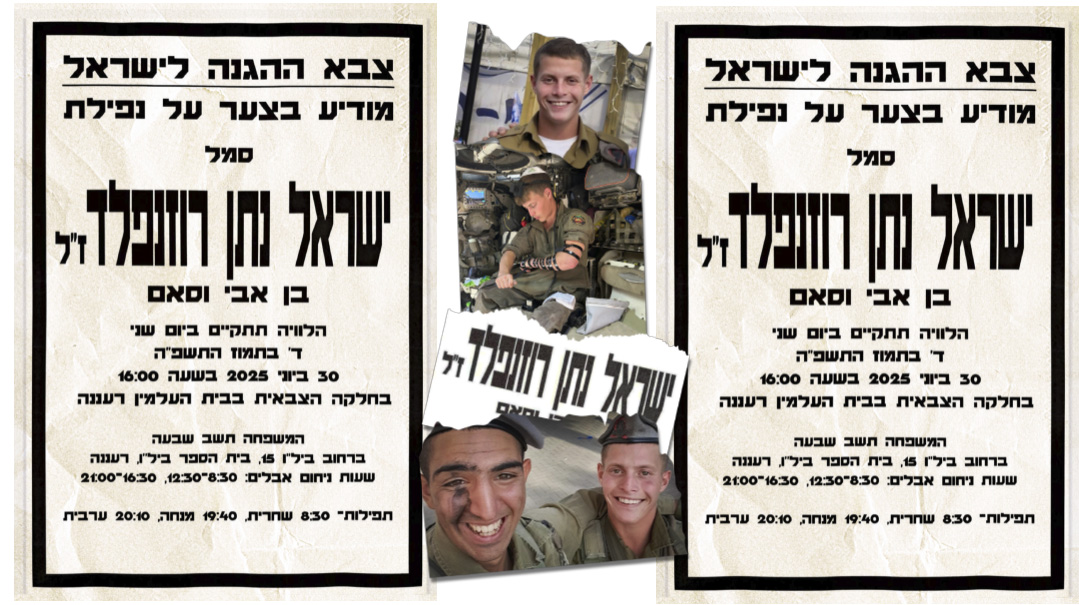Country Kosher
| July 9, 2024“It’s so good to be with Jews again,” he says wistfully, before finally heading out

“Kosher,” he says, sniffing the air as he walks in. “Have any rugelach?”
I look up from my perch behind the cash register at Country-K, the summer grocery and pizza shop my husband owns in Tannersville, New York. It’s opening day, so we’re not quite as busy as we’ll be during the rest of the season, but things are moving pretty quickly.
The bareheaded fellow introduces himself as Greg from Long Island, and we get to talking.
“I’m not religious,” he says, “but these days, we need to stick together.”
We nod, and in front of the counter, my husband gives him a little hug. It’s 8:30 p.m. — Minchah time — and men are gathering on the store’s front porch for minyan. I assume that Greg will buy his rugelach and leave. But I see him drift off to the porch, davening Minchah sans siddur and sans kippah with the rest of the minyan. He stays till closing time, gives my husband another hug, and sighs.
“It’s so good to be with Jews again,” he says wistfully, before finally heading out.
Tannersville, a town in the Catskills, has long been a Jewish summer hub. Our store’s clientele is diverse. We have lots of chassidim from Monroe, Monsey, and Williamsburg; Yekkehs from Washington Heights; Lubavitchers from all over the place; the Modern Orthodox crowd from New Rochelle, Manhattan, and Brooklyn. During bein hazmanim, the Lakewood crowd comes up.
Through it all, there’s another crowd that filters into our store: the lost Jewish souls who see the word “kosher” and come inside to check it out for old time’s sake. Invariably, they’re in Tannersville to hike Kaaterskill Falls, the tallest waterfall in New York State, or they’re lost hippies who have come to check out Woodstock, just half an hour away.
We know this crowd well. They walk in bareheaded and often not clothed in much, and sometimes, they’re slightly antagonistic. They don’t always seem to appreciate this chareidi storefront in their sunny summer wanderings. They assume we’re from Brooklyn (we’re not) and they don’t usually buy much before heading out again.
In the few short weeks since opening day, that’s all changed.
One morning, it’s two secular men who head into the store, skin inked in tattoos, bare arms and legs weathered from hiking. Like desert nomads parched for water, they head straight to the snacks aisle where they pile their basket high with Bamba and Bissli. At the register, they make conversation.
“I’m from Israel originally, but I live upstate now,” says one. “I see kosher, I come running. I didn’t have Bissli or Bamba in so long.”
I smile as I bag up his purchases.
The other says he still lives in Israel. “We’re very smiling to see kosher,” he says in broken English.
Another woman comes inside, her two dogs on leashes, the chamsah around her neck her only Jewish-identifying feature.
“I live out in Wyndham,” she says, when I ask.
Wyndham has no Jewish community to speak of, and I feel sorry for her.
“Do you have kugel?” she asks.
I tell her we’ll have cholent and kugel Thursday night, and then she asks me a question I’ve never gotten here before.
“Do you carry the little scroll that goes inside the mezuzah?”
I smile, trying to cover my wonder at the question. “We’ve had the empty case up for a while,” she explains, running her fingers through her hair. “But I know it’s really supposed to have a scroll inside.”
I nod. “That’s great!” I exclaim. “Let me see what I can do for you.”
What can I do? I think. We’re a grocery and pizza shop, not a Judaica store. There are none in Tannersville. But how can I let this woman leave without this protection?
I head to the back of the store and confer for a moment with my husband. He smiles and pulls an extra mezuzah off the storage room shelf.
“We actually have an extra one from when we ordered last year,” he says, and I laugh, because how crazy is it that we have an extra mezuzah? I head back to the front of the store where I gift her with the scroll and give her quick instructions on how to put it up, all the while hoping she’ll treat the mezuzah with respect and wondering if I’m crazy for giving this to her.
Then the woman departs, but not before gushing how happy she is to see a kosher store in the vicinity. If kosher stores make this woman so happy, I reflect, then she shouldn’t be living in Wyndham, New York.
But that’s the thing: I don’t know that this woman always cared so deeply about having kugel nearby, or about getting a scroll for her mezuzah case. And I don’t believe that an Israeli yoreid who moved out to some boondocks in upstate New York always craved Bissli and Bamba. What I do believe is that these October 8th Jews, as I’ve heard them called, are startled and frightened to have woken up in a world where friends have become foes and nobody seems to care very much.
And in that world, kosher snacks and kugel and rugelach, and the very Jewish-looking people who sell and eat these things regularly, have suddenly become a desired source of warmth and connection.
As we dish out heaping portions of kosher pizza and fries, and cholent and kugel Thursday nights, my only wish is that in their few moments in our store, we somehow inspire these hungry customers to satiate their hungry souls, too.
(Originally featured in Family First, Issue 901)
Oops! We could not locate your form.







